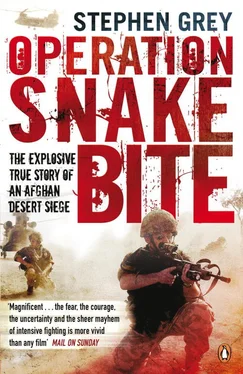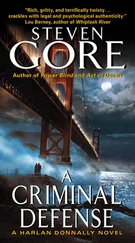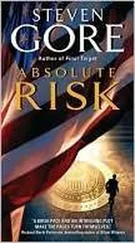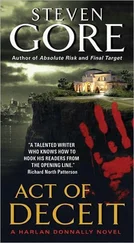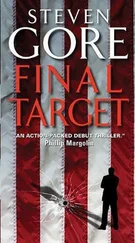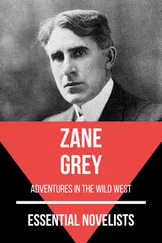That afternoon, as Mackay flew home to Lashkar Gah, the British prime minister, Gordon Brown, stood up to address the House of Commons. He announced a new strategy for the war in Afghanistan, as well as emphasizing that Britain’s policy was to kill or isolate the Taliban – not to negotiate with them.
He said: ‘Let me on the morning of the capture of Musa Qala praise the professionalism and resolve of our forces who have helped defeat the insurgents and in a vital district of Afghanistan restored peace. And let me make it clear at the outset that as part of a coalition we are winning the battle against the insurgency – isolating and eliminating the leadership of the Taliban, not negotiating with them.
That night, back in Musa Qala with B Company, Jake turned to Fong and thanked him for his prayers. It felt like a miracle to take the town without fighting. Fong replied: ‘Don’t thank me, just thank the Lord because he works in mysterious ways.’
In the next few days, the Afghans and the 2 Yorks made use of the fact that homes were empty to do a systematic search of the town. A Taliban headquarters was found with communications gear. Troops also found a factory where IEDs were put together, with enough components left behind to put together several dozen bombs. At least three laboratories were also found for the processing of raw opium.
I joined Jake as he and Sergeant-Major Benson were trying to set light to a large stash of drugs. They were having fun. They’d poured diesel all over the bags and then tried throwing phosphorus grenades to set it all alight. There was a few minutes of intense flame. But it wasn’t enough to get the opium itself to burn. Eventually the engineers stepped in and announced there was a ‘proper way’ to burn opium – inevitably involving the kind of explosive detonation they liked. All the opium was trucked off and set light together in the wadi. No one knew what it was really worth, but suggestions of an ultimate street value of 500 million dollars were released to the press. It was certainly a big haul, even if it was probably the lower-grade residue that the opium smugglers had not the time or inclination to take with them when they fled. It didn’t really matter. It was at least obvious that Musa Qala really had been a centre for narcotics.
Three days after the town was captured, a Chinook’s worth of journalists was flown from Kabul to have a whistle-stop tour of the liberated town. Their flight down was delayed and they had barely an hour to get briefed and to go downtown and talk to any of the locals who were starting to appear back. David Loyn, the BBC correspondent, was visibly bristling with frustration both that he had such little time and that the equipment he brought to do a live TV broadcast was not working. His producer, Najib, went to interview some of the locals in the market place. They told him stories that were distinctly off-message. Loyn’s report on the main TV bulletins stated:
There is euphoria among those who took the town, but civilians who remained during the bombing told stories of large numbers of civilian casualties… This has been denied both by the Afghan government and the MOD… and it was impossible to verify in the time we had on the ground… This boy, Akhtar Muhammad, says many of his relatives died and their bodies are still under the rubble, while Wali Mohd said that he came on the bodies of fifteen women of all ages in one street.
The British army press team were angry. How could the BBC broadcast such allegations when they’d been in town for such a short time and had carried out no further investigation? Loyn felt it was the army who had restricted his visit to such a short time, and his report had been well qualified. Whether the claims were accurate or not, no one at the time got to the truth of the civilian casualties that had occurred. The soldiers didn’t know themselves then what some would later come to feel: that what David Loyn had broadcast might well have been true after all.
Eight days after Musa Qala fell, Captain Andy Breach from B Company led a patrol back into Deh Zohr e Sofla, the village they had attacked during the feint operation. Surprisingly little had been touched since the moment they pulled out. At the front of the village, the body of the Taliban they had left behind was still lying there. That was how the locals treated foreign fighters. Looking round the place, they discovered the ambush positions that the Taliban had prepared for them further back. There were also strange piles of clipped body hair – reportedly the sign of religious zealots who had prepared themselves for martyrdom.
But there was an uglier sight that also awaited. In the courtyard on which a JDAM had been dropped at the end, there was a stench that made them want to retch. They started picking through the rubble. And what they found was a pile of decomposing bodies. All of them were women and children. There was no sign of any dead Taliban, but there was an impression in the mud in the middle of the compound. ‘It was a clear print of the base of a mortar,’ said Breach. The Taliban had clearly been firing from somewhere they knew was full of innocent people. It wasn’t a place to make you feel good, though: they called that place from then on JDAM House.
Everything that Mackay and all his brigade had done had been designed to try to avoid killing the innocent. They knew that was Karzai’s main concern. They knew that civilian casualties would mar their victory. And they knew that – as Mackay kept saying – this war would be won by bringing the civilian population on to the government and coalition side and not by killing them.
But wanting something and doing something were not the same.
The residents of Musa Qala voted with their feet soon after the arrival of the Afghan army. Tractors, pick-up trucks and carts started bringing people home.
Before I left Musa Qala and the 2 Yorks, I interviewed some of those who returned. They described the brutalities of life under the Taliban, including the hanging of four alleged spies and criminals. One ‘traitor’ had had his head cut off and then placed in the roadway that enters the town. ‘They killed him at three o’clock in the morning and then they left his head there for everyone to see,’ said fourteen-year-old Gul Wadi. ‘They killed both traitors and thieves; the traitors were giving secrets to the enemy.’ Others spoke of three others hanged, one left suspended from the entrance barrier to the town, one from the monument in the centre, and another in the bazaar. The Taliban had banned smoking and use of snuff and beaten and thrown into jail those they disliked. Some claimed the Taliban extorted money to fund their jihad, although others said the tax was voluntary.
Speaking at a checkpoint where those coming back were searched for weapons, eighteen-year-old Mahmoud said there had been no school in the town for months. When the Taliban arrived they turned it into a religious madrassah , as well as their headquarters. ‘No one sent their kids to the school because they were afraid the Americans would drop bombs, and everyone would be killed.
Camp Bastion field hospital morgue, 17 December
Don Johnson walked into the cool and sombre-looking morgue and saw his brother’s coffin laid out on a trestle table and draped in the Union Jack. He was about to join five other pall-bearers to carry the body to the waiting plane to be repatriated back to England. A crowd of soldiers was gathering outside for the ceremony by the aircraft ramp. The 2 Yorks padre had suggested he go in a few minutes before the others to see the coffin and collect his thoughts.
No one had really wanted him to carry the coffin. They feared he would break down. Don, being honest, suspected too that he might break down. And he knew it was going to make it harder for everyone else. But when the regimental sergeant-major had come in and told him, ‘I’ve got six names here,’ and that as a courtesy he was checking with Johnson and asked, ‘What do you think of them names?’ Don had just pointed at one of the names and had said, ‘He’s not carrying it. I’ll carry it.’
Читать дальше
